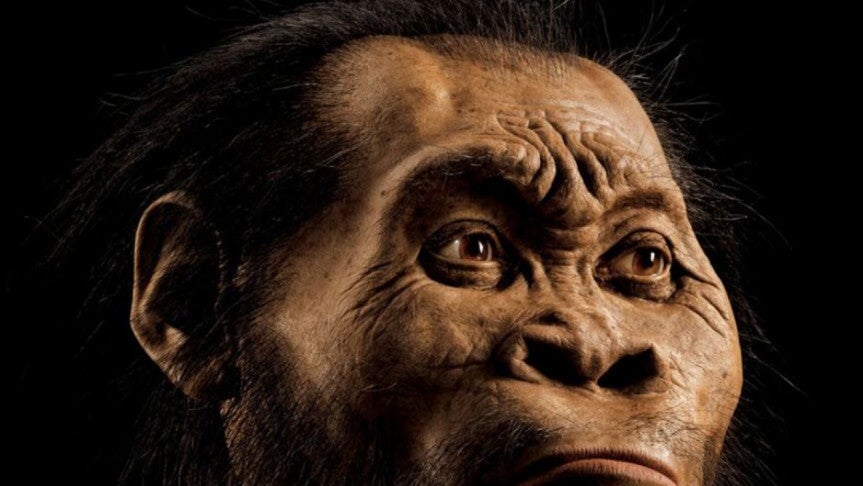Homo naledi: New ancient human species discovered

Maropeng, South Africa: The fossilised bones of 15 bodies from a previously unknown human species have been discovered in a cave in South Africa, it was announced Thursday, in what scientists hailed as a breakthrough in evolution research.
About 1,500 fossils were found deep in a cave system outside Johannesburg, hidden in an underground chamber only accessible via several steep climbs and rock crevasses.
The new species has been named ‘Homo Naledi’ after the ‘Rising Star’ cave where the bones were found. Naledi means ‘star’ in Sesotho, a local South African language.
Experts are uncertain how old the bones are, but say they were probably placed there after death—a discovery that shines fresh light on the origin of the mankind.
‘We have just met a new species of human relative that deliberately disposed of its dead,’ Lee Berger, research professor at the University of the Witwatersrand in Johannesburg, announced as the fossils were unveiled.
‘Until this moment in history we thought the idea of ritualised behaviours directed towards the dead... was actually unique to Homo sapiens.
‘We saw ourselves as different. We have now seen, we believe, a species that had that same capability—and it is an extraordinary thing.’
The bones were first discovered in 2013 by Witwatersrand University scientists and volunteer cavers in the Cradle of Humankind, a UNESCO World Heritage Site, 50 kilometres (30 miles) northwest of Johannesburg.
Ancient human remains have been found in the area since excavations begun in the 1920s.
‘Tool-using capabilities’
‘The discovery of so many fossils belonging to at least 15 individuals is remarkable,’ said Professor Chris Stringer, from the Natural History Museum in London, one of the lead analysts on the discovery.
The find highlighted ‘the complexity of the human family tree and the need for further research to understand the history and ultimate origins of our species,’ Stringer added.
Scientists say the hands, wrists and feet of the bodies were similar to modern humans, but the brain size and upper body were much more like the earliest humans.
‘Homo Naledi had a tiny brain, about the size of an average orange, perched atop a very slender body,’ said John Hawks, of the University of Wisconsin-Madison, a senior author on the academic paper detailing the new species.
Homo Naledi stood approximately 1.5 metres (about 5 feet) tall and weighed about 45 kilos (almost 100 pounds).
‘The hands suggest tool-using capabilities,’ said Tracy Kivell of the University of Kent, in Britain, who was part of the team that studied Homo Naledi’s anatomy.
‘Surprisingly, Homo Naledi has extremely curved fingers, more curved than almost any other species of early hominin, which clearly demonstrates climbing capabilities,’ she said.
The first expedition to the cave chamber in 2013 lasted for 21 days and involved more than 60 specialist cavers and scientists working in dangerous underground conditions.
Since then scientists have been studying the fossils, before revealing their conclusions.
‘This chamber has not given up all of its secrets,’ Berger added. ‘There are potentially hundreds if not thousands of remains of Homo Naledi still down there.’

 AFP
AFP




